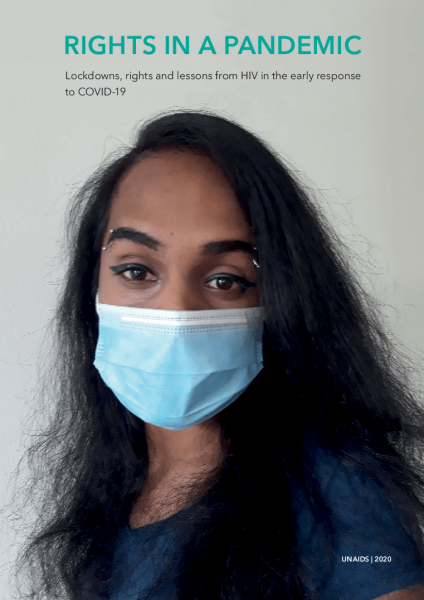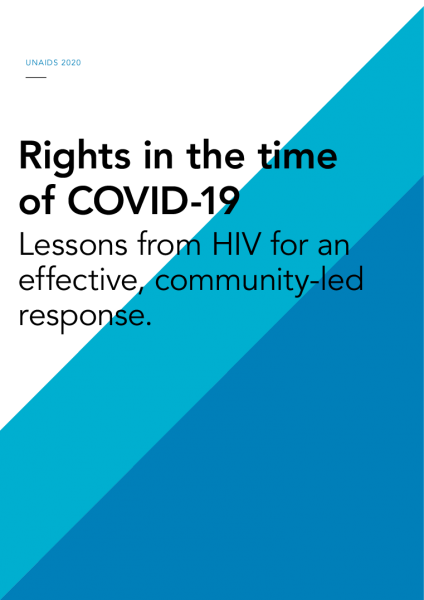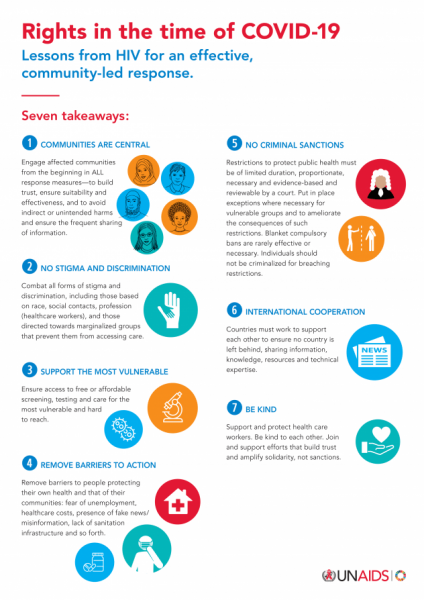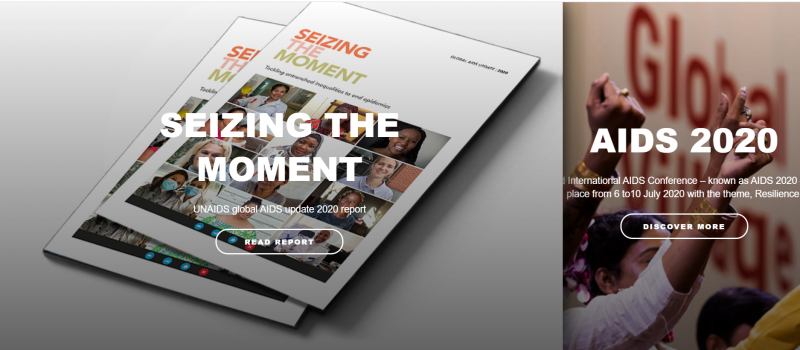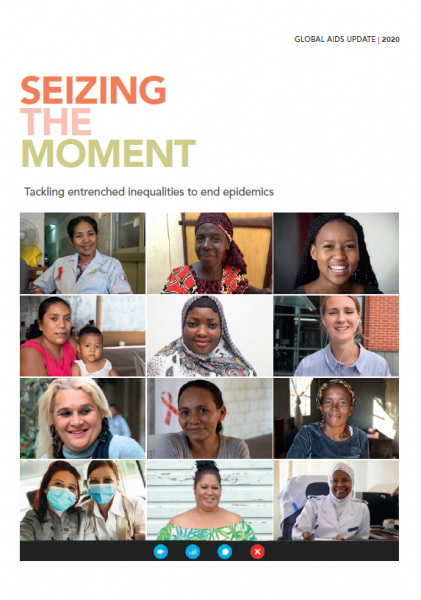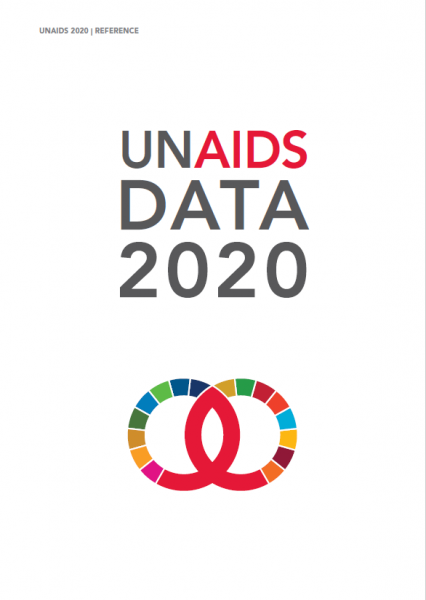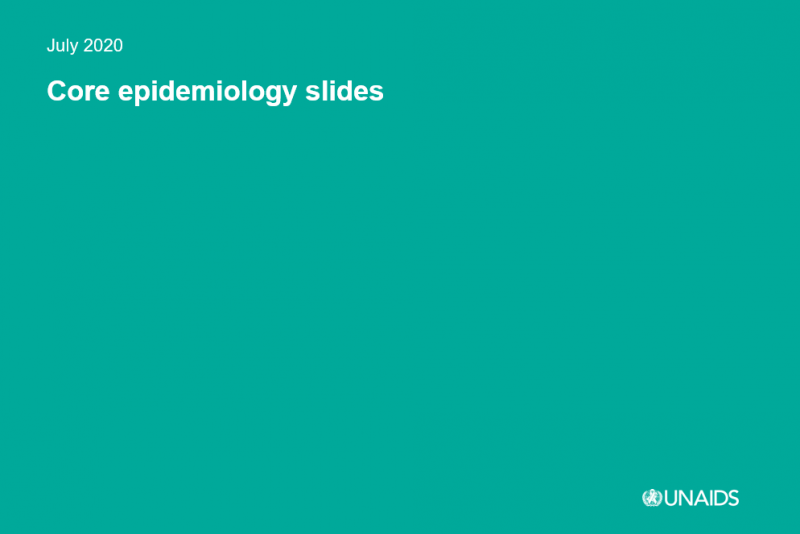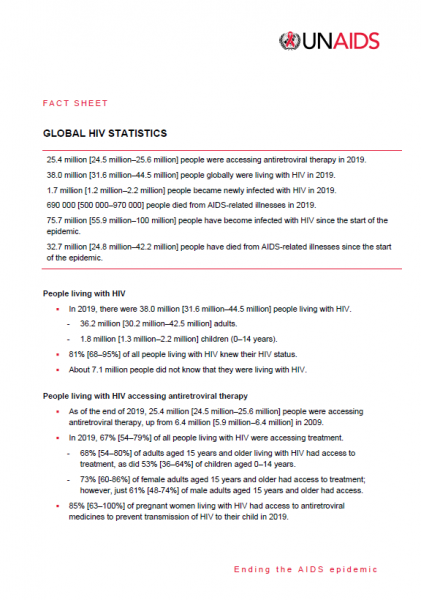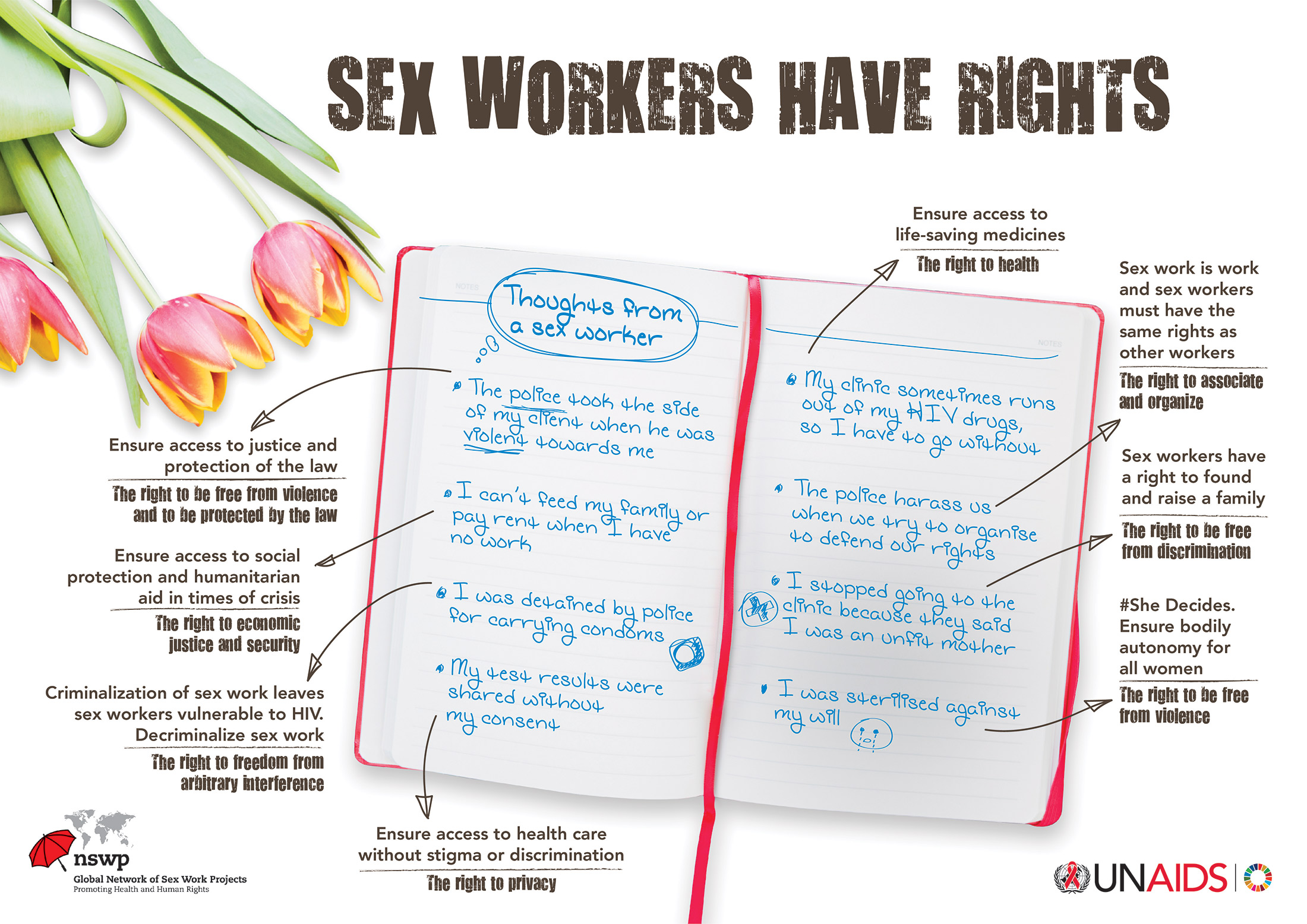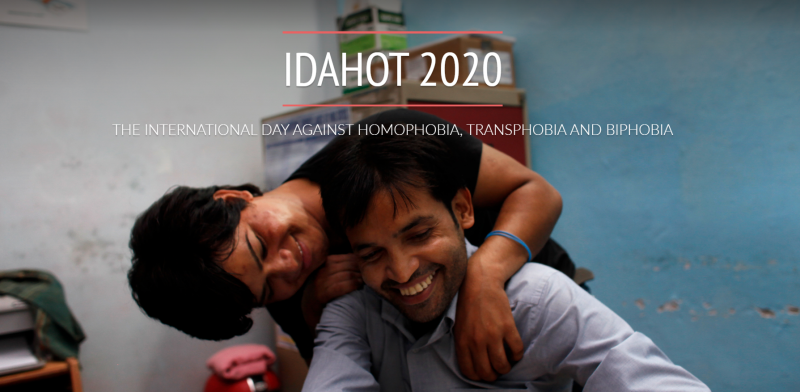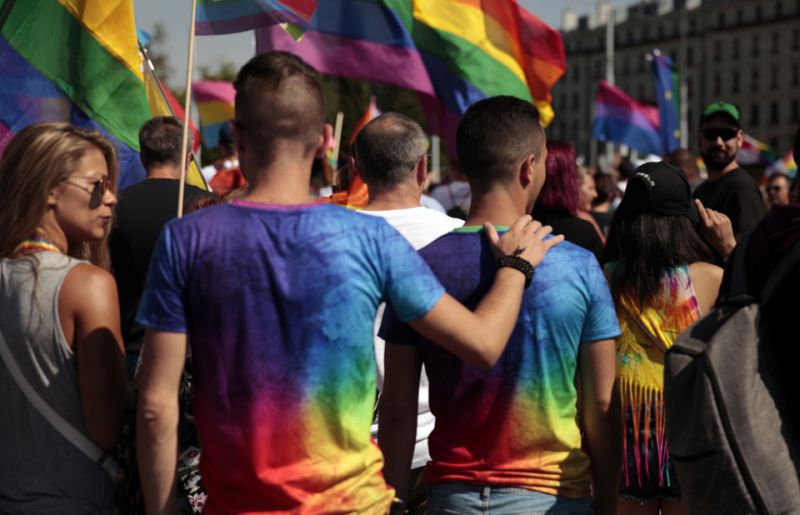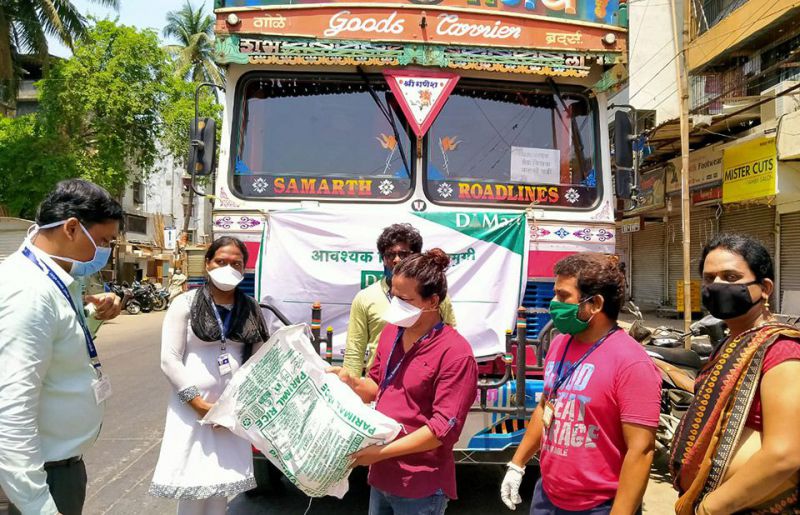Report reveals interruptions of HIV services, violence, harassment, abuse, arrests, deaths and a failure to respect human rights in their early responses to the pandemic—UNAIDS urges governments to protect the most vulnerable, particularly key populations at higher risk of HIV
GENEVA, 27 August 2020—During the early response to COVID-19 UNAIDS received numerous reports of interruptions to HIV services and disturbing human violations against vulnerable and marginalized populations. The experience of the response to HIV has proved that violations of human rights during a pandemic undermine trust, harm individuals, and set back public health responses.
The United Nations Secretary General has requested all United Nations entities to support the efforts of the World Health Organization in their own respective areas of expertise. So, to better inform the response going forwards, UNAIDS commissioned a report on how COVID-19 public health orders and restrictions on movement have impacted the response to HIV and human rights. The findings are reflective of trends across the world and uncovered significant breaches of human rights, life-threatening disruptions to health and social services, violence, abuse and discriminatory targeting of marginalized, poor and key populations.
This report is designed to help governments take positive steps to respond to human rights concerns in the evolving context of COVID-19. “It is a myth that there can be a trade-off between human rights and public health,” said Winnie Byanyima, Executive Director of UNAIDS. “Human rights are not only intrinsic, but they are also the very means by which governments can successfully beat a pandemic.”
Rights in a pandemic – Lockdowns, rights and lessons from HIV in the early response to COVID-19 is a snapshot in time, focusing on the very early days of the pandemic, from February till mid-May 2020, drawing attention to the experiences of some of the most marginalized and vulnerable communities. Violations have included instances of police using rubber bullets, tear gas, and whips to enforce physical distancing, people being arrested and detained for not wearing masks and being issued fines—people who could not pay fines remained in jail longer than those who could pay.
Doctors were arrested and detained for travelling to and from health facilities. Reports were also received of pregnant women dying after strict restrictions on movement prevented them from reaching health-care services—some died while walking to hospital. One report detailed a motorcycle taxi-driver being beaten to death by police after taking a woman in labour to hospital during curfew hours.
Rights in a pandemic outlines 10 immediate areas for action for governments towards building effective, rights-based COVID-19 responses. These include taking proactive measures to ensure that people, particularly people in vulnerable groups, can access HIV treatment and prevention services, designating and supporting essential workers, including community-led organizations, and implementing measures to prevent and address gender-based violence.
"This report is coming at a critical time,” said Felicita Hikuam, Director of the AIDS and Rights Alliance for Southern Africa. “Sadly, it seems that we have not learned the lesson HIV has tried to teach us: epidemics expose and exacerbate existing inequities and impact most negatively on those who are already marginalised.”
A major concern has been safety during lockdowns, particularly for people most affected by HIV including women and girls, children and key populations including sex workers, lesbian, gay, bisexual, transgender and intersex people. In many countries, reported incidents of gender-based violence increased by 40–70%, with even greater spikes in certain cities and regions. Transgender people were harassed and arrested for leaving their home on the “wrong day” under gendered lockdown policies. Sex workers lost incomes and were largely not eligible for financial support. As UNAIDS has repeatedly stated, violence against key populations and women and girls increases vulnerability to HIV.
“The report gives visibility within the framework of this pandemic to those of us who are pushed to the margins,” said Elena Reynaga Executive Secretary of the Network of Women Sex workers of Latina America and the Caribbean. “From a human rights perspective, we need governments to listen and implement these recommendations, which represent an important step towards ending AIDS by 2030 by leaving no one behind."
In May, UNAIDS warned of the risk that access to HIV services may be disrupted during the COVID-19 pandemic. Early modelling showed that a severe disruption in HIV treatment could result in an additional 500 000 AIDS-related deaths in sub-Saharan Africa. This new report shows that HIV prevention and treatment services were disrupted in 10 of the 16 countries reviewed. Some countries reported reductions in medicine collections of up to 20% in some areas. There were multiple reports of people living with HIV not having enough antiretroviral medicine for a lockdown of more than 60 days as well as reports of people having abandoned their HIV treatment due to a lack of food.
In addition to learning lessons from the HIV response, the HIV pandemic must not be forgotten during this crisis. “Communities of people living with and affected by HIV, have again found themselves at the crossroad of injustice and targeted discrimination in the wake of the COVID-19 pandemic,” said Rico Gustav, Executive Director of GNP+. “As a global network of people living with HIV, we call for a rights-based law enforcement that respects and recognises the need of marginalised communities to move freely to access HIV and other medication, as well as the roll out of multi-month dispensing of antiretroviral medicines for HIV.”
There are however many positive examples. In 15 of the 16 countries reviewed, governments released people from prisons to reduce overcrowding and stem COVID-19 transmission. Where governments partnered with civil society and the private sector, responses to COVID-19 were more positive and inclusive. In some countries free transport was provided for emergency medical care during curfews and in others, police handed out masks rather than fines. Some countries provided temporary homeless shelters and supplies of food to people living in camps for displaced people. Others declared that water supplies could not be suspended for non-payment of bills and placed a moratorium on evictions or invested heavily in food support.
“National human rights institutions, such as the one I lead, have a critical role to play in tracking and protecting the human rights of all, both vulnerable and well-to-do, and especially during times of crisis and pandemics such as COVID-19 and HIV,” said Anthony O. Ojukwu, Executive Secretary, National Human Rights Commission of Nigeria. “This report opens to us the opportunity to work with institutions across the world to enforce the checks and balances in place in our own countries to correct excesses such as those of the security personnel during the early days of the lockdown.”
UNAIDS also received reports of countries expanding multi-month dispensing of HIV medicines to 3- or 6-month supplies and of others implementing home deliveries or community-based delivery of medicines.
“UNAIDS acknowledges the positive steps taken. COVID-19 is likely to be with us for a very long time though,” said Ms Byanyima. “We have a commitment to stand up for the most vulnerable even in the tough environment COVID-19 has put us in. We will use this report to convene governments, communities and partners to open a dialogue and to find a way forward to reform bad laws, policies and practices and to protect human rights.”
The report builds on Rights in the time of COVID-19, released by UNAIDS in March 2020, which urged countries to take a human rights approach in responding to COVID-19, in line with best practices from 40 years of responding to HIV.
UNAIDS
The Joint United Nations Programme on HIV/AIDS (UNAIDS) leads and inspires the world to achieve its shared vision of zero new HIV infections, zero discrimination and zero AIDS-related deaths. UNAIDS unites the efforts of 11 UN organizations—UNHCR, UNICEF, WFP, UNDP, UNFPA, UNODC, UN Women, ILO, UNESCO, WHO and the World Bank—and works closely with global and national partners towards ending the AIDS epidemic by 2030 as part of the Sustainable Development Goals. Learn more at unaids.org and connect with us on Facebook, Twitter, Instagram and YouTube.



